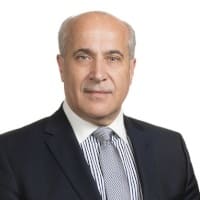Over the past decade there has been much discussion about issue of trust in financial services on a global basis. It is quite remarkable that despite the endless instances of malpractice that few have suffered any penalty.
Surely the message out of all of this was that it is acceptable to game consumers and compromise corporate responsibility in the pursuit of ever increasing profit?
Regrettably, the financial advice sector mainly controlled by Banks has enthusiastically held up its end. Why would we then be surprised that trust is a casualty?
The names Storm Financial, WestPoint and many others, including household brands such as CBA, Macquarie, NAB, and most recently ANZ and Westpac, have all been associated with misplaced trust by individuals planning and saving for their retirement.
There is nothing more sacred to any hard working individual than to protect and grow their assets to improve the quality of their life. Why should they not have the same privilege as those same financial services providers who enrich themselves using unfair tactics and little responsibility?
Of course the actions of some should not tar everybody with the same brush. But when that ‘some’ is actually pretty much almost the whole market of providers, we need to stop and wonder how this could have happened?
One view is that whilst the industry has long held a position of trust, it has progressively decided that the ‘best interest’ obligation to its customers could simply be traded for a ‘best interest’ obligation to itself.
It is really disappointing that we have had to legislate to reinstate an essential ingredient in dealing with people’s finances.
Survey after survey shows that banks and financial planners as a whole do not enjoy high levels of public trust.
Regrettably, there is little evidence to suggest this situation is in any way improving. Is it any wonder why less than 20% of the population employ the services of a personal financial adviser? This, despite the fact that the government mandates that nearly 10% of everyone’s salary is to be placed into a superannuation account.
Who you trust for good personal financial advice and who you trust to get the best financial advice for your business are fundamental questions?
I have two observations on this issue.
On the financial planning front, over 70% of all financial planning advice comes from channels controlled by the ‘Big 4’ banks.
If you are both the factory and the shop, why would one be surprised that most recommendations are home brand products and services? Whilst some of these products may well be as good as you will find, it is highly questionable as to whether they are always so.
But thankfully, the days of what most observers call conflicted advice from financial planners are on the wane.
Whether it’s the recommendations of Murray Financial Services Inquiry, the restoration of the original FOFA (Future of Financial Advice) by the Senate, repeated statements by ASIC or even the recent announced intentions of President Obama to reform of the US advice industry the future is clear.
Increasingly those planning for retirement will demand advice that does not involve the ‘trusted’ adviser including a commission in the financial products they recommend. As that famous copy line says, ‘it won’t happen overnight, but it will happen’, and at a quickening pace, I believe.
My second observation relates to the other major participant in the financial advice industry: accountants.
Research in advanced economies regularly shows accountants to be the most trusted financial advisers – higher even than bank managers and lawyers.
For accountants to maintain this exalted position I believe they must embrace technology as never before.
The take-up of cloud computing is a signal that most recognise this. Equally, more and more technology platforms form the basis of the returns for Australia’s 540,000 SMSFs.
To become competitive, accountants need to take a wider view of their natural domain.
Accounting has sadly over time largely retreated to compliance work and reporting the past.
This area is now under extreme pressure from the technology megatrend provided through the internet, smart devices and applications and cloud computing.
This is severely disrupting all sorts of services. Quantitative services such as tax and financial statement reporting are immediately at risk.
This means that technology savvy practitioners will, by necessity, need to adopt more advisory services to remain relevant in assisting and guiding their clients with sound decisions relating to the future of their personal or enterprise affairs.
The focus will shift from compliance to management accounting.
The former will be become more commoditised or ‘margin thin’, whilst the latter will become the driver of successful relations as the client and practitioner work together to shape the future of the enterprise or individual in question.
Equally, at both an individual and an enterprise level, the most successful accountants are likely to take an active interest in the complete gamut of financial services required by clients.
This will not only include compliance and management accountancy, or forward looking advice, but also risk and lending services, as well as retirement and succession planning, to name a few.
The one-stop-shop financial services experience for wealthy clients has long been the norm in the form of the so-called Family Office model, and I believe is the way of the future for successful practices.
If one stops to think about it for a moment, it’s only logical that the most trusted provider should build on this bank of goodwill and stored confidence to provide a more holistic offering.
Editor’s note: This article was amended to remove the phrase “I head Australia largest non-aligned financial planning business and Australia’s leading accounting business in the SME market” following a request from Findex in January 2017

Spiro Paule is chief executive officer of Findex Group, parent company of Financial Index Wealth Accountants which was named Dealer Group of the Year at the 2014 ifa Excellence Awards.



